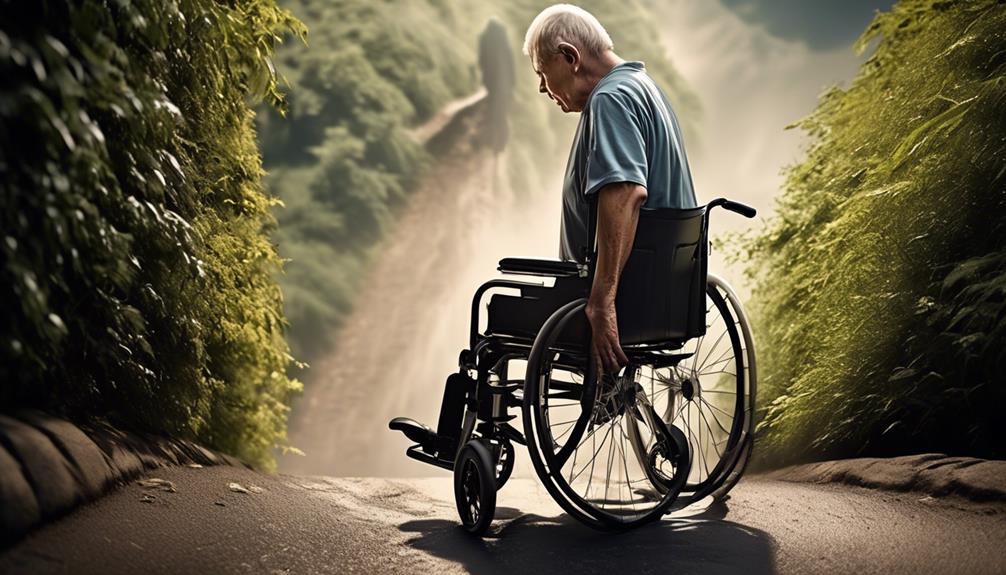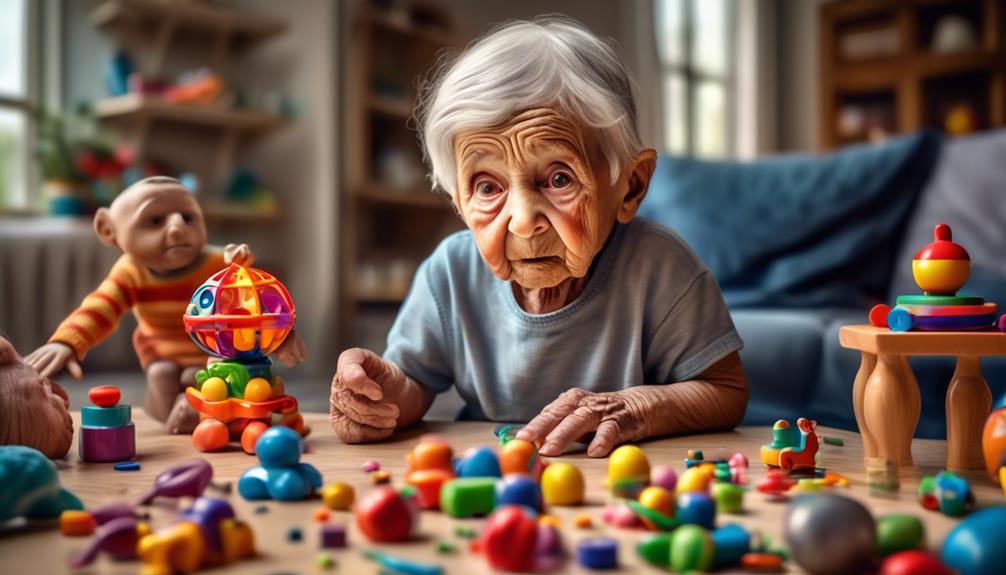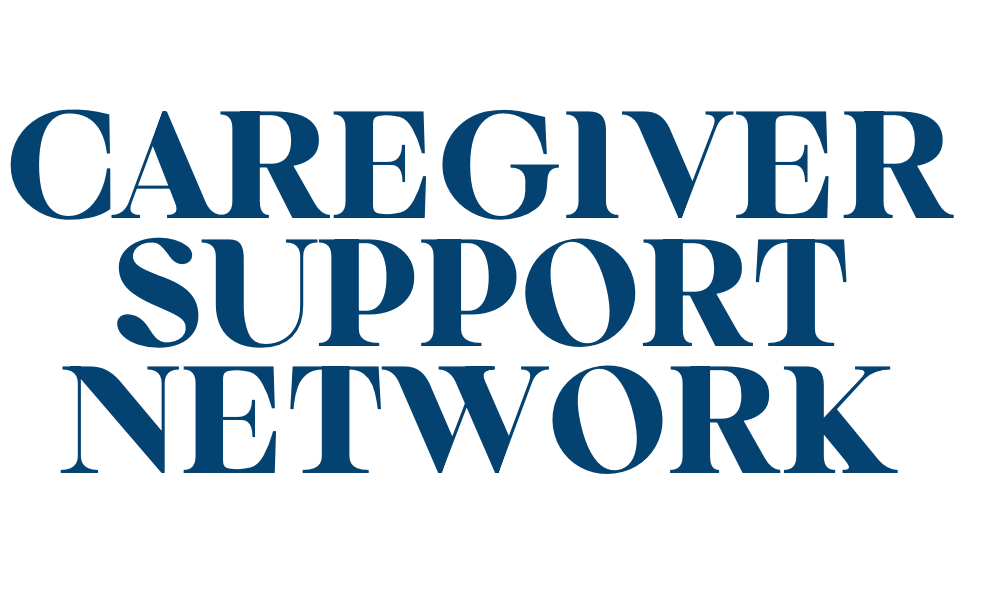Caregiving Issues
Is Your Caregiving Journey Like Running a Sprint Marathon?
A comparison between caregiving and sprint marathons reveals the endurance needed for both – but what strategies will help you cross the finish line?

Embarking on the caregiver path can seem like running a marathon at the speed of a sprint, demanding an exceptional degree of both mental and physical endurance. As caregivers, we navigate through terrain filled with unexpected challenges and uncharted paths that push us to our limits.
The similarities between caregiving and marathon running run deep, reflecting the endurance required to weather the storm. But how do we maintain this relentless pace, and what strategies can help us endure the long journey ahead?
Join us as we uncover the parallels between caregiving and sprint marathons, exploring the resilience needed to cross the finish line.
Key Takeaways
- Preparation is vital for unexpected challenges in caregiving and marathon running.
- Support systems are crucial for motivation and well-being in both endeavors.
- Endurance and resilience are key for the long-haul journey of caregiving.
- Mental toughness and perseverance are essential attributes for caregivers.
Similarities Between Caregiving and Sprint Marathon
In both caregiving and sprint marathons, we navigate challenges that test our endurance and resilience, requiring unwavering dedication and preparation. Family caregivers and sprint marathon runners understand the importance of being prepared for the unexpected twists and turns that come their way. Just as a marathon runner trains meticulously for the race day, caregivers must anticipate and plan for the various needs of their loved ones. Both roles demand a high level of commitment and adaptability to handle the unpredictable nature of their respective journeys.
Support systems play a crucial role in the success of both family caregivers and sprint marathon participants. Just as a runner relies on cheering spectators and fellow runners for motivation, caregivers draw strength from their support networks. Whether it's friends, family, or professional help, having a strong support system can make a significant difference in maintaining motivation and overall well-being throughout the caregiving or marathon experience. The presence of a supportive community can provide the encouragement and assistance needed to overcome challenges and thrive in these demanding roles.
Endurance Challenges in Caregiving

Navigating the endurance challenges of caregiving requires unwavering patience, resilience, and a long-term commitment to the well-being of our loved ones. Caregivers often find themselves in a marathon-like journey, providing unpaid care for several years to support their family members or friends. The task demands a deep reservoir of endurance, as there are no quick solutions to the conditions their care receivers face. It's a test of patience, a continuous demonstration of commitment, and a daily exercise in resilience.
| Endurance Challenges in Caregiving | |
|---|---|
| Average Duration of Care | 4 years |
| Percentage Caregiving for 5 Years or More | 24% |
| Likelihood of 10+ Years Caregiving for Most Hours | Twice as likely |
Caregiving is not a sprint; it's a long-haul journey where pacing oneself is crucial. The ups and downs of this path necessitate a steady resolve to endure, showing unwavering dedication to the well-being of those we care for. Each day is a step forward in this marathon of caregiving, where patience and commitment are the fuel that keeps us going.
Resilience Requirements in Caregiving
Building resilience in caregiving is a fundamental requirement for navigating the marathon-like journey of providing long-term care to our loved ones. Caregiving demands a level of endurance that can be challenging, with the average caregiver dedicating four years to their role and a significant 24% providing care for five years or more.
Resilience plays a crucial role in this journey, as caregivers must prepare themselves for the long road ahead, bracing for the inevitable highs and lows that come with caring for a loved one. Much like a marathon, caregiving isn't a sprint; there are no quick solutions to the conditions faced by the care receiver.
To bolster their resilience, caregivers can access various forms of support, research, and literature designed to help them navigate challenges effectively. It's vital for caregivers to acknowledge the marathon-like nature of their journey, emphasizing the importance of endurance, patience, and adaptability in providing the best care possible for their loved ones.
Strategies for Caregiving Stamina

With caregiving being a marathon-like journey, employing effective strategies for maintaining stamina is essential for caregivers in providing consistent support to their loved ones. Here are four key strategies to help caregivers enhance their caregiving stamina:
- Self-Care Routine: Just like a marathon runner prioritizes their physical well-being, caregivers must establish a self-care routine. Taking breaks, eating well, exercising, and getting enough rest are crucial in sustaining the energy needed for caregiving.
- Family Support System: Building a strong support network within the family can significantly boost a caregiver's stamina. Sharing responsibilities, open communication, and seeking help when needed can lighten the load and prevent burnout.
- Utilize Care Professionals: Care professionals are like the coaches of the caregiving marathon, providing guidance, expertise, and respite care. Enlisting their help can provide valuable support and valuable tips for navigating the caregiving journey effectively.
- Emotional Resilience: Just as a marathon runner faces mental challenges, caregivers need emotional resilience. Accepting limitations, seeking counseling if necessary, and practicing mindfulness can help caregivers manage stress and maintain stamina throughout their journey.
Mental Toughness in Caregiving
Developing mental toughness in caregiving is a vital aspect that parallels the endurance required by sprint marathon runners to navigate the challenges and uncertainties of providing care. Just as marathon runners build resilience to endure the long race, caregivers must cultivate mental fortitude to sustain themselves throughout the caregiving journey. The perseverance needed in caregiving mirrors the determination exhibited by sprint marathon runners, requiring a steadfast commitment to overcome the emotional and physical demands of caring for others.
In the realm of caregiving, mental toughness is a fundamental trait that enables caregivers to face obstacles with strength and resilience. Similar to how marathon runners push through fatigue and mental barriers, caregivers must maintain focus, determination, and unwavering mental strength to navigate the complexities of their responsibilities. Endurance and perseverance aren't only physical attributes but also mental attributes that caregivers must continuously nurture to provide the best possible care. By developing mental toughness, caregivers can enhance their ability to cope with the challenges that arise, ultimately benefiting both themselves and those under their care.
Frequently Asked Questions
How Does Caregiving Impact the Caregiver's Personal Relationships Outside of Their Caregiving Responsibilities?
Caregiving deeply affects our personal relationships beyond its responsibilities. We find ourselves juggling caregiving duties with maintaining connections with loved ones. This balancing act can strain relationships, making it crucial to communicate openly with family and friends about our caregiving journey.
Understanding and support from our loved ones are vital in navigating the challenges of caregiving while nurturing healthy relationships outside of our caregiver role.
What Are Some Common Misconceptions About Caregiving That Can Make It More Challenging for Caregivers?
Caregiving can be tough due to misconceptions that paint it as solely about physical tasks. In reality, it's emotionally and mentally demanding too. Many overlook the toll it takes on relationships and self-care needs.
This lack of understanding can make it harder for caregivers to seek support and prioritize their well-being. By acknowledging these misconceptions, we can better support and empower caregivers in their vital roles.
How Can Caregivers Navigate the Financial Strain That Often Comes With Caregiving Responsibilities?
Navigating the financial strain of caregiving can be daunting. We understand the challenges it brings. Seeking financial assistance through government programs, exploring insurance options, and creating a budget can help.
It's crucial to communicate openly with family members about sharing financial responsibilities. Remember, you aren't alone in this journey. Together, we can find solutions to alleviate the financial burden and focus on providing the best care for our loved ones.
What Resources Are Available for Caregivers to Help Them Maintain Their Own Physical and Mental Health While Caring for Others?
When caring for others, it's crucial to prioritize our own well-being. We can rely on a variety of resources to help maintain our physical and mental health during this journey. Support groups, counseling services, and respite care can provide much-needed relief and guidance.
How Can Caregivers Effectively Communicate With Healthcare Professionals and Other Support Systems to Ensure the Best Care for Their Loved Ones?
When it comes to effectively communicating with healthcare professionals and support systems for our loved ones, we've found that open and honest dialogue is key.
Sharing our concerns, asking questions, and actively participating in care discussions help ensure the best outcomes.
Conclusion
In conclusion, while the caregiving journey may feel like a sprint marathon, we must remember to pace ourselves and practice self-care to endure the ups and downs.
One might argue that it's easier said than done, but with support and resilience, we can navigate this demanding journey with strength and grace.
Remember, you aren't alone in this marathon, and taking care of yourself is just as important as taking care of your loved one.
Stay strong and keep going.
Albert brings a wealth of knowledge and expertise to our writing team. With a background in caregiving and a deep understanding of the challenges faced by caregivers, Albert’s writing resonates with authenticity and empathy. He is committed to delivering high-quality content that empowers and supports caregivers on their journey.
Caregiving Issues
Raising Children and Caring for A Family Member With Alzheimer's
Uncover the intricate balance of raising children and caring for a loved one with Alzheimer's, unveiling hidden depths of resilience and love.

Balancing the intricate duty of raising children while also caring for a loved one with Alzheimer’s disease is akin to juggling delicate glass orbs, where each orb represents a different aspect of our lives.
The weight of responsibility can feel overwhelming at times, yet the rewards are immeasurable. As we strive to maintain equilibrium in this complex role, we discover depths of strength and resilience we never knew existed within us.
Join us as we explore the nuances of this dual caregiving journey, uncovering insights and strategies to nurture our families with love and compassion.
Key Takeaways
- Prioritize self-care for physical and mental well-being.
- Seek support from family, friends, and community resources.
- Establish a strong support system for caregiving challenges.
- Utilize practical routines and visual aids for organization and memory.
Challenges of Dual Caregiving Roles
Balancing the responsibilities of raising children and caring for a family member with Alzheimer's can be emotionally and physically challenging for caregivers. The weight of dual caregiving roles often leads to caregiver stress, as individuals navigate the demands of both caregiving responsibilities. This stress can manifest in various ways, impacting the caregiver's well-being and ability to provide adequate support to their loved ones.
In these situations, support groups can play a crucial role in helping caregivers cope with the challenges they face. Connecting with others who are going through similar experiences can provide a sense of community, understanding, and emotional support. Additionally, seeking guidance on legal and financial matters is essential when managing the care of a family member with Alzheimer's while raising children. Understanding legal rights, accessing financial resources, and planning for the future can help alleviate some of the burdens associated with caregiving responsibilities. By proactively addressing these aspects, caregivers can better navigate the complexities of dual caregiving roles while prioritizing their own well-being and that of their loved ones.
Balancing Family Needs

Effective time management and prioritization of tasks are crucial when juggling the needs of family members while caring for a loved one with Alzheimer's. Balancing family needs requires a delicate dance of meeting the demands of caregiving, family life, and personal obligations.
It's essential to communicate openly with family members to distribute caregiving responsibilities equitably and ensure everyone feels supported. Flexibility in scheduling is key, as the needs of the person with Alzheimer's may change, requiring adjustments to accommodate them while still tending to other family members.
Seeking caregiver support through community resources, support groups, and healthcare professionals can provide valuable assistance in managing the complexities of balancing family needs with caregiving duties. Remember, you aren't alone in this journey; reaching out for help and creating a network of support can lighten the load and help maintain a harmonious family dynamic amidst the challenges of Alzheimer's caregiving.
Self-Care Strategies
Navigating the demands of caregiving for a loved one with Alzheimer's can be overwhelming, making it essential to prioritize self-care strategies to maintain your physical and mental well-being. As caregivers, it's crucial to remember that taking care of ourselves enables us to provide better care for our loved ones. Seeking support from family, friends, or community resources can provide a much-needed break and emotional sustenance. Remember, you aren't alone in this journey, and reaching out for help is a sign of strength, not weakness.
Respite care is a valuable resource for caregivers, offering short-term breaks to recharge and focus on personal well-being. It's okay to take time for yourself; in fact, it's necessary. Adult day care centers can also offer a temporary reprieve while engaging your loved one with Alzheimer's in meaningful activities. Remember, self-care isn't selfish – it's a vital aspect of being a sustainable and effective caregiver. Prioritizing your own well-being ensures you can continue to provide the best possible care for your family member.
Seeking Support Systems

In caring for a family member with Alzheimer's, establishing a strong support system is essential for navigating the challenges and uncertainties that may arise. Caregivers can seek support through organizations like the Alzheimer's Association, which offer a wealth of resources and information tailored to Alzheimer's care. Online support groups and forums provide a platform for caregivers to connect with others facing similar challenges, offering a sense of community and understanding.
Attending caregiver support groups can be immensely beneficial, allowing caregivers to share experiences, receive emotional support, and learn effective coping strategies. These groups create a safe space for caregivers to express their feelings and concerns openly. Additionally, professional counseling services are available to help caregivers navigate the emotional and physical demands of caring for a loved one with Alzheimer's. Counseling can provide valuable tools and strategies for managing stress, anxiety, and the complexities of caregiving. With the support of these resources, caregivers can feel more equipped to handle the challenges that come with caring for a family member with Alzheimer's.
Practical Tips for Caregiving
Establishing practical routines and utilizing visual aids are key strategies to support individuals with dementia in their daily activities and enhance their quality of life. A structured daily routine can help the person with dementia feel more comfortable and secure, reducing confusion and anxiety.
Visual aids like calendars and to-do lists assist in memory and organization, making tasks more manageable. Consistent medication reminders are crucial for proper dosing and adherence, ensuring the person's health and well-being.
Encouraging independence in daily tasks such as dressing and bathing, while offering support when needed, promotes a sense of accomplishment and self-worth. Planning engaging activities at regular times provides mental stimulation and emotional well-being.
Caregiving for a person with dementia requires patience, understanding, and flexibility. By implementing these practical tips, caregivers can create a supportive environment that enhances the person's quality of life and fosters a sense of dignity and respect.
Frequently Asked Questions
How Do You Handle a Family Member With Alzheimer's?
We handle a family member with Alzheimer's by creating a safe environment, using clear communication techniques, establishing a routine, promoting independence, and seeking support. It's crucial to reduce confusion, provide structure, and offer assistance when needed.
We navigate the challenges by leaning on healthcare professionals, caregiver groups, and available resources. With empathy and knowledge, we strive to support our loved one through this journey.
How Does Alzheimer's Affect Family Caregivers?
Alzheimer's affects family caregivers profoundly. The stress, exhaustion, and emotional toll can be overwhelming. Balancing caregiving with work and family commitments presents significant challenges.
Caregivers may face job sacrifices, financial strains, and changes in family dynamics. The toll on caregivers' well-being is comparable to engaging in risky habits. It's crucial to recognize and support the immense impact Alzheimer's has on those caring for their loved ones.
What Not to Do When Caring for Someone With Alzheimer's?
When caring for someone with Alzheimer's, it's crucial to avoid correcting them, leaving them alone in unsafe situations, using complex language, rushing tasks, or taking their behavior personally. These actions can lead to frustration, confusion, and agitation for the individual.
Instead, maintain patience, provide a safe environment, simplify communication, and offer support with compassion. Remember, it's about creating a nurturing and understanding atmosphere for their well-being.
What Type of Support Is Available to Families and Patients With Alzheimer's?
We understand the importance of support for families and patients facing Alzheimer's. Various resources like educational materials, caregiver training, and local support groups are available.
Online communities and helplines offer advice and assistance. Clinical trials provide access to cutting-edge treatments.
Additionally, telehealth services allow convenient consultations with healthcare professionals. It's crucial to know that help is out there, and we're here to guide you through this journey.
Conclusion
In conclusion, navigating the dual roles of raising children and caring for a family member with Alzheimer's is like juggling flaming torches while walking a tightrope – challenging, but not impossible.
By prioritizing self-care, seeking support, and maintaining open communication, families can conquer any obstacle with grace and resilience.
Remember, we're all in this together, and with love, understanding, and a dash of humor, we can overcome any challenge that comes our way.
Stay strong, stay connected, and keep shining bright.
Albert brings a wealth of knowledge and expertise to our writing team. With a background in caregiving and a deep understanding of the challenges faced by caregivers, Albert’s writing resonates with authenticity and empathy. He is committed to delivering high-quality content that empowers and supports caregivers on their journey.
Caregiving Issues
How Many Hours of Respite Care Are You Allowed?
Startling variations exist in the number of respite care hours permitted, impacting caregivers and care recipients differently – discover the crucial factors at play.

Many individuals may not be aware that the amount of respite care hours they are eligible for can vary significantly, based on their specific circumstances and the type of care required. Understanding these nuances is crucial for ensuring that both recipients of care and their caregivers receive the required support without unnecessary restrictions.
By exploring the factors influencing respite care hours, the limitations imposed on in-home versus out-of-home services, and the eligibility criteria for accessing these benefits, a clearer picture can emerge regarding the possibilities available for seeking respite care assistance.
Key Takeaways
- Individual needs impact respite care hours.
- Provider qualifications crucial for determining maximum hours.
- In-home respite care offers flexibility and personal assistance.
- Out-of-home respite services provide 24-hour living arrangements and personalized care.
Factors Affecting Respite Care Hours
Factors that influence the number of respite care hours allowed include the individual's needs and the approval of the Managed Care Organization (MCO). Understanding the care requirements of the person in need is crucial in determining the appropriate amount of respite care. The MCO plays a pivotal role in approving the allocation of these hours, considering factors such as the annual limit, typically set at 30 days. However, exceptions can be made for caregiver emergencies or extenuating circumstances that warrant additional support beyond the standard limit.
When unforeseen situations arise, like caregiver emergencies or extenuating circumstances, the MCO reviews the individual's case to determine if an extension to the annual limit is necessary. It's essential for caregivers and individuals receiving care to communicate their needs effectively to ensure that the appropriate level of respite care is provided. By working together with the MCO, we can strive to meet the unique care requirements of each individual while navigating any challenges that may arise.
Maximum Hours Based on Provider Qualifications

Understanding the qualifications of the provider is crucial in determining the maximum hours of respite care allowed based on the individual's needs. Licensed providers play a significant role in delivering in-home respite care tailored to meet the specific needs of those requiring assistance.
Here are key points to consider:
- Provider Qualifications: Licensed providers are authorized to deliver respite care services for a specified number of hours per week.
- Individual's Needs: The level of care required by the individual is a determining factor in the maximum hours of respite care allowed.
- Tailored Care: The hours of respite care authorized are tailored to meet the individual's specific needs, ensuring that they receive the appropriate level of support.
In-Home Respite Care Hour Limitations
When determining the limitations on hours for in-home respite care, the focus is on providing flexibility tailored to the caregiver's needs and the individual's care plan. In-home respite care services typically do not have a set limit on the number of hours provided, allowing caregivers to take the time they need to care for their loved ones effectively. Providers of in-home respite care understand the diverse needs of each caregiver and disabled family member, offering personal assistance services that cater to those specific needs without strict hourly constraints. The goal of in-home respite care is to support caregivers by covering respite care for the day, ensuring they can attend to their responsibilities while knowing their loved ones are receiving the care they require. This flexibility in scheduling and duration makes in-home respite care a valuable option for those seeking support while caring for a disabled family member.
| Benefits of In-Home Respite Care |
|---|
| Flexibility in scheduling and duration |
| Tailored to caregiver's needs and care plan |
| Personalized assistance services |
| Relief for caregivers |
| Support for disabled family members |
Out-of-Home Respite Services Restrictions

As caregivers navigate the complexities of providing in-home respite care with its inherent flexibility, understanding the restrictions associated with out-of-home respite services becomes crucial for a comprehensive caregiving approach. When considering out-of-home respite services, caregivers should be aware of the following key points:
- Out-of-home respite services typically provide a 24-hour living arrangement in settings like Adult Foster Care (AFC) homes or Nursing Facilities (NF), ensuring round-the-clock care and support.
- These services encompass a wide range of tasks, including meal preparation, personal care, assistance with Activities of Daily Living (ADLs), and even transportation provision for the individual in need.
- Task delegation within the facility is guided by professional judgment to guarantee that the care delivered aligns with the individual's specific needs and requirements.
Understanding these aspects of out-of-home respite services can aid caregivers in making informed decisions about the most suitable care options for their loved ones.
Understanding Member Eligibility for Respite Care
To be eligible for respite care services, members living in their own home or with relatives must not have their primary caregiver be the respite care provider. This ensures that individuals receive the necessary care from a provider who can focus solely on their well-being. Respite care services are designed to offer temporary relief to primary caregivers, providing members with personalized care in a familiar environment. Before receiving respite care, it must be authorized in the Individualized Service Plan (ISP) to tailor the services to the member's specific needs. In-home respite care is typically delivered by licensed providers who offer personal assistance services to enhance the member's quality of life.
| Eligibility Criteria for Respite Care | Details |
|---|---|
| Living Arrangement | Own home or with relatives |
| Primary Caregiver Relationship | Cannot be the respite care provider |
| Authorization Requirement | Included in the Individualized Service Plan (ISP) |
| Service Delivery | In-home by licensed providers |
| Annual Limit | Typically 30 days, subject to approval by the Managed Care Organization (MCO) |
Frequently Asked Questions
Does Medicaid Pay for Respite Care in Texas?
Yes, Medicaid does pay for respite care in Texas.
Coverage varies based on individual needs and approvals. Medicaid may cover respite care hours provided by licensed providers to support caregivers.
Eligibility criteria and documentation must be met for Medicaid to fund respite care services for eligible individuals. It's essential to understand the specific requirements to access this beneficial support through Medicaid in Texas.
What Is the Right to Respite Care?
Respite care is a vital resource for caregivers, offering temporary relief while ensuring loved ones receive proper care. It provides a much-needed break, preventing burnout and supporting overall well-being.
The right to respite care is a lifeline for caregivers, promoting physical and mental health. Access to respite care services is crucial for those who devote themselves to caring for others. It's a compassionate and necessary support system for all involved.
What Are the Disadvantages of Respite Care?
Disadvantages of respite care include limited provider availability, adjustment challenges, and potential waitlists. Caregivers may feel guilt or anxiety, worrying about judgment or their caregiving abilities. Costs can be a concern, as insurance may not fully cover expenses.
Transitioning back to full-time care can be tough for both parties. Despite these challenges, respite care offers essential breaks for caregivers, promoting overall well-being and enhancing long-term caregiving abilities.
Does Medi Cal Pay for Respite Care?
Medi Cal does cover respite care services, providing essential support for individuals caring for loved ones with disabilities or illnesses. Eligibility criteria must be met, and prior authorization is usually necessary for coverage.
The exact hours allowed can vary based on individual needs and circumstances. It's crucial to reach out to Medi Cal providers or representatives for specific details on coverage and limitations.
This assistance can make a significant difference in the quality of care provided.
Conclusion
In conclusion, remember that 'a burden shared is a burden halved.' It's important to understand the limitations and flexibility of respite care hours, as they can vary based on individual needs and circumstances.
By working closely with your Managed Care Organization and healthcare providers, you can ensure that you receive the appropriate amount of respite care to support both you and your loved one. Remember, you're not alone in this journey.
Albert brings a wealth of knowledge and expertise to our writing team. With a background in caregiving and a deep understanding of the challenges faced by caregivers, Albert’s writing resonates with authenticity and empathy. He is committed to delivering high-quality content that empowers and supports caregivers on their journey.
Caregiving Issues
What Is Respite Care for Elderly?
Peek into the tranquil world of respite care for the elderly, where caregivers find a momentary escape amidst their caregiving journey.

Consider elderly respite care as a serene sanctuary amidst the complex terrain of caregiving duties, offering a moment of repose and rejuvenation on the strenuous path.
But what exactly does this entail for caregivers and their loved ones?
Let's unravel the layers of respite care services and explore the intricate web of support that can provide much-needed assistance and comfort in times of need.
Key Takeaways
- Respite care offers temporary relief for primary caregivers of elderly individuals.
- Various forms of respite services cater to specific caregiver and senior needs.
- Funding options like health insurance and Medicare can support respite care costs.
- Respite care enhances well-being, reduces stress, and improves quality of life.
Definition of Respite Care
Respite care offers essential temporary relief to us, the primary caregivers of elderly individuals, allowing us to take well-deserved breaks from our caregiving duties. As caregivers, we devote our time to providing care for our loved ones, but it's crucial to remember that we also need care and support. Respite services come in various forms, such as at-home care, day-care centers, or residential facilities, giving us the flexibility to find respite care that best suits our needs and those of our family members.
When we feel overwhelmed or simply need some time to recharge, respite care steps in to provide the assistance required. It isn't just about a physical break but also about nurturing our mental and emotional well-being. By utilizing respite services, we can ensure that we continue to provide the best possible care while preventing burnout and reducing stress. Finding respite care allows us to strike a balance between caring for our loved ones and taking care of ourselves, fostering a healthier caregiving environment for all involved.
Benefits for Caregivers and Seniors

Understanding the challenges faced by caregivers and seniors is crucial in appreciating the significant benefits that respite care can offer in enhancing overall well-being and quality of life. Caregiving for elderly loved ones can be physically and emotionally demanding, often leading to burnout and increased stress levels. Respite care provides caregivers with temporary relief, allowing them the opportunity to take a break, recharge, and prioritize self-care. This temporary support not only benefits the caregivers' own well-being but also enhances the quality of care they provide to seniors.
For seniors, respite care offers a chance to socialize, engage in activities, and receive personalized attention from trained professionals. It provides them with additional support and companionship, contributing to their overall happiness and mental health. By exploring different respite care options such as home-based care, adult day care centers, or residential facilities, caregivers can tailor the support to meet the specific needs of their elderly loved ones. Ultimately, respite care serves as a vital resource in ensuring both caregivers and seniors receive the necessary relief, support, and care to lead fulfilling lives.
Types of Respite Care Services
Exploring the various options available, we can discover different types of respite care services designed to provide temporary relief and support for both caregivers and seniors. Here are the types of respite care services that can be found to help meet the needs of your loved ones:
- In-Home Respite Care: This type of respite care is provided in the comfort of the senior's home, offering assistance ranging from a few hours to overnight stays, tailored to the specific requirements of the senior.
- Adult Day Care Centers: These centers offer respite care services during daytime hours, providing activities, socialization, and supervision for seniors while giving family caregivers the time they need to attend to other responsibilities.
- Residential Facilities: Some respite care programs take place in residential facilities that cater to seniors, adults, and children, offering 24-hour caregiver relief and support in a safe environment.
- Combined Support Services: Certain respite care programs integrate support services, educational opportunities, and peer interactions, enhancing the overall caregiving experience for seniors and their caregivers.
Considerations for Choosing Respite Care

Considering the well-being of both caregivers and seniors is paramount when selecting the most suitable respite care option. When choosing respite care, it is crucial to take into account various factors to ensure a positive experience for all involved. Below is a table outlining essential considerations for selecting respite care:
| Consideration | Description | Example |
|---|---|---|
| Location of Respite Care | Determine if care will be provided at home, in day-care centers, or residential facilities. | Opting for home care services for a familiar environment. |
| Types of Respite Services | Explore in-home care, out-of-home programs, and the range of services from personal to skilled health care. | Utilizing an assisted living facility for comprehensive care. |
| Funding Options | Assess available funding options such as health insurance coverage or support from veterans programs. | Exploring financial aid through the ARCH National Respite Network. |
Resources for Respite Care Information
In our search for valuable information on respite care resources, we explore the support provided by the ARCH National Respite Locator Service. When looking for respite care options, it's essential to consider various resources that can guide you in making informed decisions. Here are some key points to keep in mind:
- State-Sponsored Programs: These programs offer respite care services tailored to the needs of elderly individuals and their caregivers, providing essential support and relief.
- Adult Day Care Centers: These centers can be valuable resources for respite care, offering a safe and engaging environment for seniors while their family members take a break.
- Medicare Coverage: Medicare often covers most costs associated with respite care for individuals receiving hospice care, easing financial burdens for families during challenging times.
- Private Health Insurance Plans: While Medicare may cover certain aspects of respite care, it's important to note that private health insurance plans typically don't cover these costs, prompting the need to explore alternative funding options.
Frequently Asked Questions
What Are the Disadvantages of Respite Care?
Disadvantages of respite care can include feelings of guilt and anxiety for caregivers, as they worry about the quality of care provided in their absence. Care recipients may experience confusion or distress transitioning to new caregivers. Challenges in finding suitable providers, especially for specialized care needs, can arise. Financial costs may limit access to respite services. Inconsistent schedules or limited availability can add stress and uncertainty to caregivers' responsibilities.
These factors can create additional burdens for both caregivers and care recipients, highlighting the importance of addressing these challenges to ensure the well-being of all involved.
Who Is Respite Care Best Suited For?
Respite care is best suited for family caregivers who need a temporary break from their caregiving duties. We understand the importance of taking care of oneself to provide the best care for our elderly loved ones.
It's ideal for those experiencing burnout, stress, or feeling overwhelmed. Respite care allows us to recharge, prevent caregiver fatigue, and ensure our loved ones receive continuous support.
It's a vital resource for those seeking short-term relief while prioritizing their own well-being.
What Does It Mean When Someone Is in Respite Care?
When someone is in respite care, they're receiving temporary relief from their primary caregiver. During this time, trained professionals or volunteers are providing care and support to the individual.
This allows the primary caregiver to take a break and attend to their own needs. Respite care is a vital service that ensures both the caregiver and the elderly individual are well-supported and cared for.
Is Respite Care the Same as Hospice?
Respite care and hospice care serve different purposes.
While respite care offers temporary relief to caregivers, hospice care focuses on end-of-life comfort.
Respite care provides breaks for caregivers, whereas hospice care enhances quality of life during terminal illness stages.
Understanding these distinctions ensures appropriate support for elderly individuals and caregivers.
Conclusion
In conclusion, respite care for the elderly is a valuable resource for both caregivers and seniors, offering much-needed relief and support. It allows caregivers to take a break and recharge, while ensuring that their loved ones receive quality care.
Remember, taking care of yourself is just as important as taking care of others. So, don't hesitate to explore respite care options and give yourself the break you deserve. After all, a happy caregiver leads to a happier senior.
Albert brings a wealth of knowledge and expertise to our writing team. With a background in caregiving and a deep understanding of the challenges faced by caregivers, Albert’s writing resonates with authenticity and empathy. He is committed to delivering high-quality content that empowers and supports caregivers on their journey.
-

 Dementia Care2 months ago
Dementia Care2 months agoUnderstanding the Stages of Vascular Dementia: A Visual Chart Guide
-

 Dementia Care3 months ago
Dementia Care3 months ago10 Engaging Dementia Games for Cognitive Stimulation
-

 Dementia Care3 months ago
Dementia Care3 months agoHow Gabapentin Affects Dementia: A Comprehensive Guide
-

 Dementia Care3 months ago
Dementia Care3 months ago5 Things You Need to Know About Jack Nicholson’s Dementia
-

 Dementia Care1 month ago
Dementia Care1 month agoUnderstanding Narcissism and Dementia: A How-To Guide
-

 Dementia Care1 month ago
Dementia Care1 month agoHow to Deal with a Parent’s Dementia: A Practical Guide
-

 Dementia Care1 month ago
Dementia Care1 month agoDavid Suchet’s Wife Opens Up About Living with Dementia
-

 Dementia Care1 month ago
Dementia Care1 month agoUnderstanding the Link Between Ambien and Dementia: A How-To Guide




















